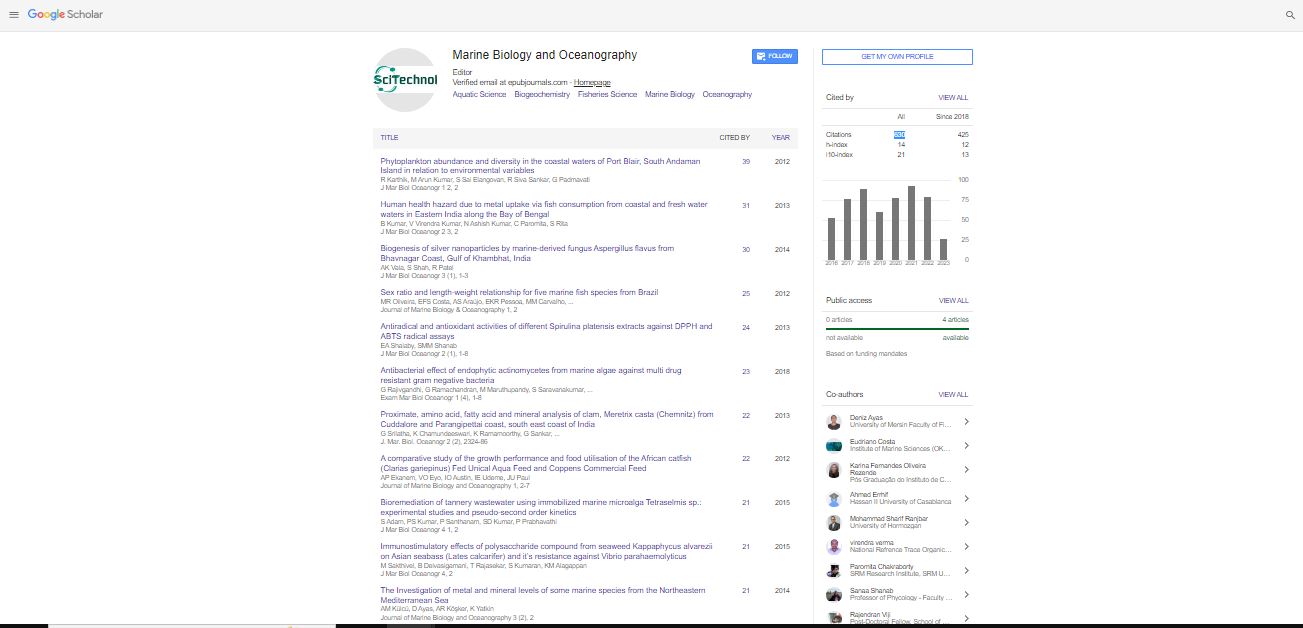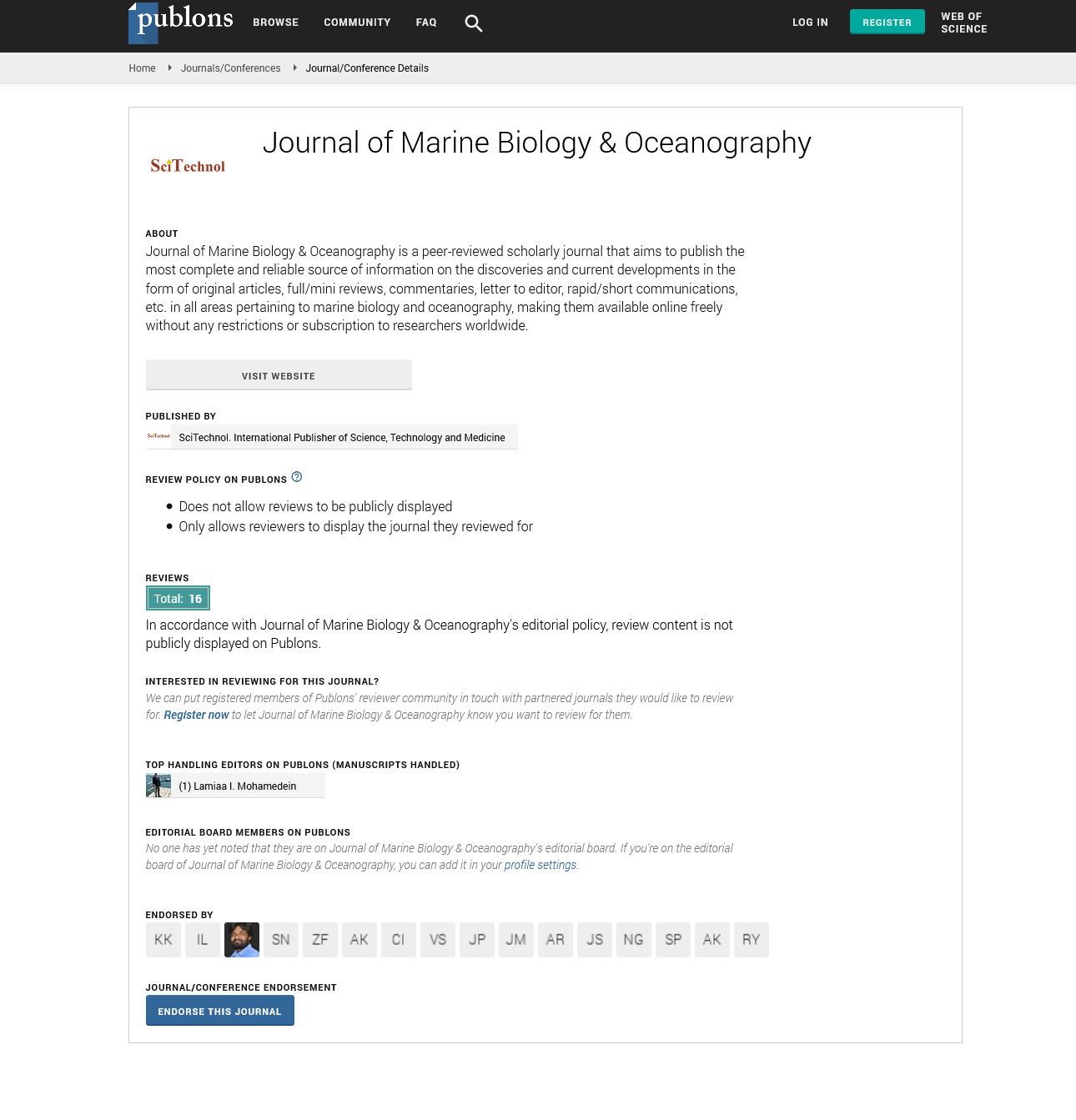Influence of flooding on the microbial water quality of the Calabar River and the Cross River Estuary
Ama-Abasi D E, Showell J O and Eze B E
University of Calabar, Nigeria
: J Mar Biol Oceanogr
Abstract
Rivers and estuaries are the focus of human settlement and recreation. Waste discharges, accidental spills, urban and agricultural runoff, and groundwater flow carry a wide range of pollutants which impact water quality and cause aquatic pollution. Water bodies adjacent to urban areas receive organic matter from various point and nonpoint sources of human waste which are moved to these waters through surface runoff and flooding among others ways. In Nigeria, surface runoff is however the primary source of introduction of microorganisms into urban waters. Organic matter in storm water runoff is associated with pathogens and other contaminants. Storm water runoff from urban watersheds can continue after the rains stop leading to a major potential for human exposure to pathogens by those using the water body for recreation or even drinking. Studies were conducted to investigate the influence of flooding on the microbial water quality of the Calabar River and Cross River estuary, two water bodies adjacent to recreational and tourists centres in Calabar metropolis of Nigeria. Bacteria loads of the water and sediments of the two water bodies were monitored for one year during ebb tides and flood tides using standard bacteriological methods. Total heterotrophic count in water was moderately high. The highest count of 5.8 x 105 cfu/ml was recorded during the wet season month of June. Total heterotrophic bacteria count was highest in sediment than in water. Thehighest count in water was recorded in the month of June which marked the peak of rainy season with total rainfall of 273.5 mm. There was also a positive correlation between the tide and the bacteria count with the flood tide having higher bacteria count than the ebb tide. The high bacteria count in the wet season months and during flood tide indicates the influence of flooding on the microbial load in the water. Such influence means flooding during climate change will increase the pollution status of the Calabar and Cross River Estuary with increase in water borne diseases. A proactive and ameliorative measure must be set up in the coastal and riverine communities to combat the incidence of diseases as an adaptation to climate change.
Biography
Ama-Abasi D E is an Associate Professor of Fisheries from the University of Calabar, Calabar, Nigeria. He completed his PhD in 2003. He is a two time grantee of International Foundation for Science, Stockholm, Sweden and a Fulbright Scholar. He has published over 30 research articles in reputable journals and has been serving as a research scientist and Lecturer in Institute of Oceanography, University of Calabar, Calabar.
E-Mail: amaabasi2@yahoo.com
 Spanish
Spanish  Chinese
Chinese  Russian
Russian  German
German  French
French  Japanese
Japanese  Portuguese
Portuguese  Hindi
Hindi 
